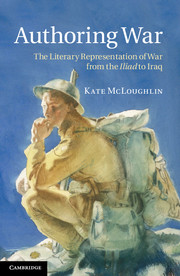Bibliography
Published online by Cambridge University Press: 01 June 2011
Information
- Type
- Chapter
- Information
- Authoring WarThe Literary Representation of War from the Iliad to Iraq, pp. 195 - 216Publisher: Cambridge University PressPrint publication year: 2011
